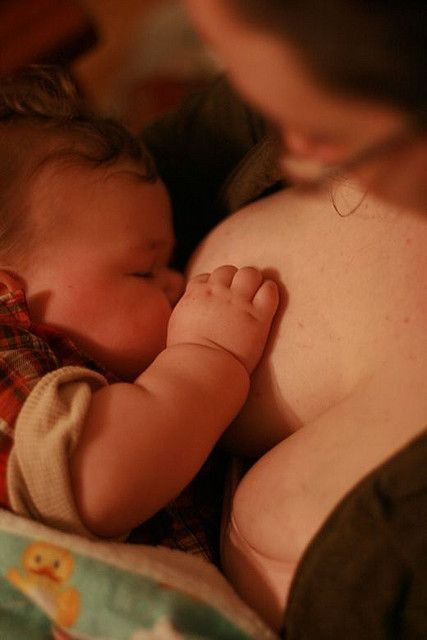Keep Going, Moms: Breastfeeding Past 6 Months Can Make Your Child Smarter

A mother's care of her child in infancy can affect the way that her child develops. This care includes a myriad of things, and among them, breastfeeding is often a controversial one. While it has been established that breastfeeding can offer many health benefits to a newborn, its effect on cognitive development has yet to be established.
A new study, however, measures intelligence in children ages three and seven who were breastfed during the first year of their lives. Intelligence was measured at age three by the Peabody Picture Vocabulary Test, a test of vocabulary that reflects verbal ability and scholastic propensity. Intelligence was then measured again at age seven by the Kaufman Brief Intelligence Test, a test best suited to assess verbal and nonverbal abilities for children and young adults. Researchers found that being breastfed for a longer amount of time increased Peabody scores by 0.38 points and Kaufman scores by up to 0.54 points in verbal and nonverbal skills.
What's so great about breast milk?
Are the benefits of breast milk only possible given a mother's healthy diet, or does it offer its own benefits regardless? Researchers compared the intelligence measures at the age of three between children of mothers who ate more fish and children of mothers who ate fish fewer than two times a week while they were breastfeeding. The understanding of this measure is that nutrients in breast milk are aided by the nutrients in fish, namely n-3 fatty acid docosahexaenoic acid (DHA). DHAs are known to support brain growth and development; the increase in a child's DHA levels from breast milk may help his or her cognitive development from an early age. As expected, the researchers found greater intelligence scores in children with mothers who ate more fish.
However, the researchers debate whether the fish intake, alone, could have created the increase in intelligence, or if the result is an effect of a longer duration of breastfeeding offered to the child. They concluded that positive effects are indeed reaped from the extension in the time of breast feeding alone. To make up for this possible discrepancy, researchers also performed a Home Observation Measurement of the Environment short form assessment. The test measures cognitive stimulation and emotional support in the child's environment. Higher scores indicate more favorable environments for development.
What difference does breastfeeding make?
The researchers found that children from homes with high Home Observation scores were often breastfed the longest and reaped the most benefits. Similarly, the correlation between the duration of breastfeeding and verbal intelligence became clearer. The researchers estimate a 0.8-point increase in verbal intelligence for every month a child is breastfed for up to one year.
While the caveat about diet still remains inconclusive, it is clear that breastfeeding improves cognitive development and gives children an edge over their peers who were not breastfed for as long as they were.
"In summary, our results support a causal relationship of breastfeeding in infancy with receptive language at age 3 and with verbal and nonverbal IQ at [age 7]. These findings support national and international recommendations to promote exclusive breastfeeding through age 6 months and continuation of breastfeeding through at least age 1 year," the authors concluded.
What do others have to say about it?
In an editorial critique of the study, Dimitri A. Christakis, M.D., says that breastfeeding in public should become a social norm. This stigma against public breastfeeding could be why only 35 percent — down from 70 percent — of women breastfeed past six months until the recommended 12-month mark. "Furthermore, workplaces need to provide opportunities and spaces for mothers to [breastfeed]... [While] breastfeeding in public should be destigmatized. Clever social media campaigns and high-quality public service announcements might help with that...Let's allow our children's cognitive function be the force that tilts the scale, and let's get on with it," concluded Christakis.
The debate over whether women should stop before or after their children can ask for it is a debate best saved for another time.
Sources: Belfort MB, Rifas-Sherman SL, Kleinman KP, et al. Infant Feeding and Childhood Cognition at Ages 3 and 7 Years: Effects of Breastfeeding Duration and Exclusivity. JAMA Pediatrics. 2013.
Christakis DA. Breastfeeding and Cognition: Can IQ Tip the Scale?. JAMA Pediatrics. 2013.



























